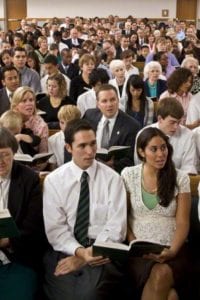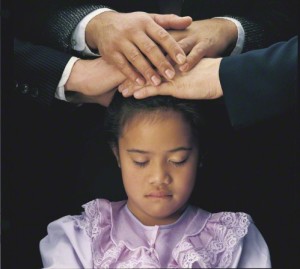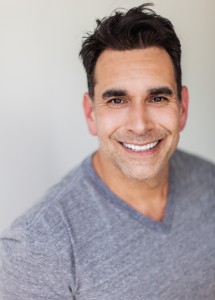
Recently, a video has been on social media about a 12 year old young woman speaking in a testimony meeting about being gay. This is being promoted as a heartfelt moment of tenderness, only to be ruined by the bad stake leader, who happened to be on the stand that day, who asked her to sit down. The mom writes, “…this stake member chose to hurt my child, I don’t know his reasons.”[1]
So, let’s put this in context.
UNDERSTANDING LDS CHURCH MEETINGS
Each Sunday, Mormons meet together. Our most sacred meeting is called “Sacrament Meeting.” According to the Church Handbook of Instructions, 18.2.2, it says:
Each sacrament meeting should be a spiritual experience in which members of the Church renew their covenants by partaking of the sacrament. Other purposes of sacrament meeting are to worship, provide gospel instruction, perform ordinances, conduct ward business, and strengthen faith and testimony.[2]
In instructions given to Church leaders we read:
…bishoprics and branch presidencies need to plan sacrament meetings thoughtfully in order to keep the meetings focused on the Lord and His Atonement, His example, and the doctrines of the gospel.[3]
One Sunday each month, members have a special Sacrament meeting called “Fast and Testimony” meeting. Prior to attending the meeting, members typically go without eating two meals. This fasting is to put themselves into a spiritual frame of mind of worship. Usually, members take the money saved from fasting and put it towards feeding the poor. As part of that meeting, after the sacrament (Communion), “the conducting brother bears a brief testimony. He then invites members to bear brief, heartfelt testimonies of the Savior, His teachings, and the Restoration.”[4]
These testimonies are not speeches or talks. They are not pre-written. They are not a time of advocacy. They are short, extemporaneously expressed, heartfelt feelings about the Gospel of Jesus Christ and how we have been strengthened by it. On lds.org it says:
A testimony is a spiritual witness given by the Holy Ghost. The foundation of a testimony is the knowledge that Heavenly Father lives and loves His children; that Jesus Christ lives, that He is the Son of God, and that He carried out the infinite Atonement; that Joseph Smith is the prophet of God who was called to restore the gospel; that The Church of Jesus Christ of Latter-day Saints is the Savior’s true Church on the earth; and that the Church is led by a living prophet today. With this foundation, a testimony grows to include all principles of the gospel. [5]
With this in mind, let’s look at this incident.
THE EVENT
From her mother, we learn that Savannah has been struggling recently. Her Dad and 4 siblings attend church regularly, while her mom stays home with “our oldest”. From context, that appears to be Savannah. Savannah was the one who wanted to do this. She had been pushing her parents on this for several months. Her mother says:
She wanted to be herself in front of them, see if church would be a place to accept her, and to speak up in case there was another LGBT person in the congregation that needed to hear they weren’t alone.
So, Savannah invited several of her friends to come hear her, and they recorded the event.[6] Several in the Ex Mormon community, including the guy who sneaks into Temples to record people, are now pushing hard to get this incident promoted to all of the press outlets and on social media.[7]
As this girl’s parents know, Fast and Testimony meeting isn’t a place for giving speeches, which is what she did. She had her speech all written out and read it from the pulpit. I wish her parents had talked with her more about appropriate forums and venues. This isn’t about whether a girl is struggling with her sexuality, or about how a Church leader handled it. This is a clear case of hijacking a meeting, promoting false teachings, and exploiting a child’s inexperience to create a media event. Savannah was likely allowed to say much more from the pulpit than an adult would have been allowed to say.
Her testimony starts out fine.
Hi, my name is Savannah, and I want to share my testimony with you.
I believe I am the child of Heavenly parents.
I don’t know if they talk to us, but I feel in my heart that they made me and that they love me.
I believe that I was made the way I am, all parts of me, by my Heavenly Parents.
They did not mess up when they gave me brown eyes, or when I was born bald. They did not mess up when they gave me freckles, or when they made me to be gay.
That part is fine. Even mentioning her sexuality, could be seen as appropriate within a testimony given during Fast and Testimony meeting. Next, in an actual testimony, you would expect something about how some life event, has helped her to grow spiritually. But, Savannah doesn’t do that. She goes on advocating for her position by saying:
“No part of me is a mistake.”
“I do not choose to be this way and it is not a fad.”
“I know I am not a horrible sinner for being who I am.”
“I know I can have all of these things as a lesbian and be happy.”
“I believe that if God is there, he knows I am perfect just the way I am and would never ask me to live my life alone or with someone I am not attracted to.”
In the middle of her speech she says, “I believe God would tell me if I was wrong.”
Well, as members of The Church of Jesus Christ of Latter-day Saints we believe he did exactly that. We do not believe she is a “horrible sinner” for being who she is, but you will find our teachings on family and relationships clearly stated in the document titled “The Family, a Proclamation to the World.”[8] This is a fundamental belief of our faith. In essence, she is saying that she doesn’t trust the teachings of Jesus Christ given through our prophets today.
THE EXIT NARRATIVE
While talking about the love of God, which we can all agree with, her speech was calling out the beliefs of the Church of Jesus Christ of Latter-day Saints as false. It follows the pattern of a typical exit narrative which reads, I used to believe the Church is true, but now I find joy and happiness outside of Church teachings. I hope you will give up your false beliefs and follow me. Anyone advocating that from the pulpit should be asked to step down, even if they are twelve years old.
HEAVENLY FATHER’S PLAN
Savannah is correct in stating that we are all unique. We are all born with various talents and gifts. We are all born with passions and desires. We are all born with weaknesses and frailties.
Heavenly Father’s plan is to have us learn to overcome our weaknesses and frailties. It is to control our passions and desires. It is to develop our talents and gifts. He gave us a set of guidelines called commandments that will give us the greatest amount of happiness in mortality and eternal life. The question is if we believe and trust Him.
None of us are perfect just the way we are. That is a child’s point of view. All of us have difficulties. Many of us do have to live our lives alone. It is one of life’s many challenges.
THE FUTURE
I wish Savannah the best no matter what her future choices might be. I hope that her parents, step in to de-escalate this event. Every child needs to be allowed to grow. I think of those young people I know who thought they were gay when they were 12 or 13, and are now in happy heterosexual relationships. I care for one of them very much. I would hate to have had her in the headlines while she was deciding which direction her life might go.
After Savannah spoke, the Church leader conducting stood up and repeated the uplifting and true statements that Savannah made. There was no harsh language. There was no condemnation. There was no negative judgement. There was no lack of support for Savannah as a daughter of God. What occurred was a stake leader protecting the purpose of the Sacrament meeting and refocusing it on the Gospel of Jesus Christ. This was simply a case of inappropriate venue and advocacy.
[1] https://www.reddit.com/r/exmormon/comments/6a31bl/did_anyone_hear_about_the_12yo_girl_whose_mic_was/
[2] https://www.lds.org/handbook/handbook-2-administering-the-church/meetings-in-the-church/18.2.1?lang=eng#182
[3] https://www.lds.org/ensign/2004/08/worshiping-at-sacrament-meeting?lang=eng&_r=1
[4] https://www.lds.org/ensign/2004/08/worshiping-at-sacrament-meeting?lang=eng&_r=1
[5] https://www.lds.org/topics/testimony?lang=eng
[6] Recording our worship service in the chapel is against church policy. But, being guests, they likely didn’t know that, or didn’t care.
[7] He stated on Reddit, “I offered to edit and distribute the video as well as promote the hell out of it. I’ve spent at least 40 hours in the past ten days editing and promoting the video to every media contact I’ve made (and a lot of new ones).”
[8] https://www.lds.org/topics/family-proclamation?lang=eng&old=true






